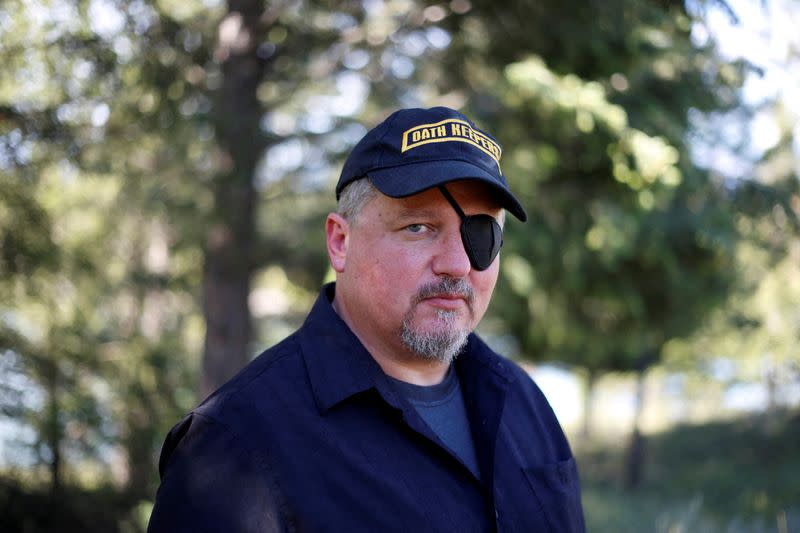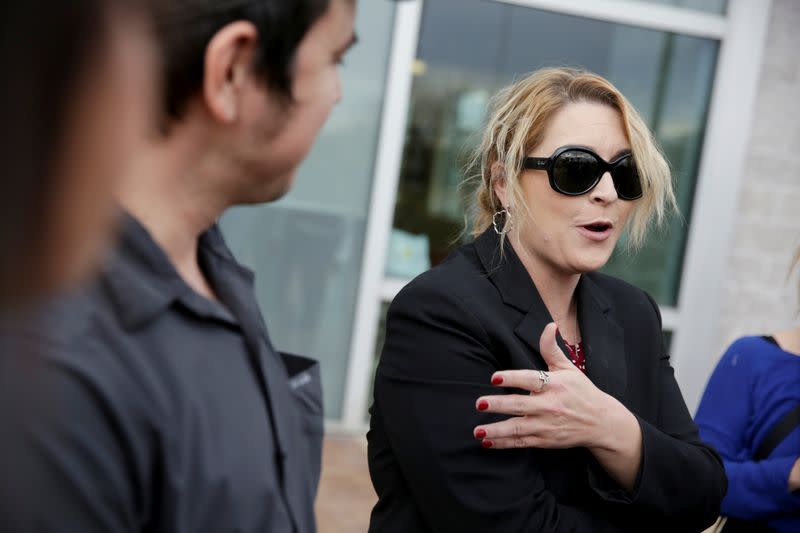Text messages between Oath Keepers founder and lawyer not protected, U.S. judge rules
By Chris Gallagher
WASHINGTON (Reuters) - U.S. prosecutors will be allowed to introduce potentially incriminating messages between the leader of the Oath Keepers and the far-right group's general counsel, a judge ruled on Thursday, saying the texts were personal in nature and do not fall under attorney-client privilege.
Prosecutors had briefly shown the court a December 2020 message from founder Stewart Rhodes to lawyer Kellye SoRelle before the defense objected last week. Rhodes is one of five Oath Keepers on trial for their alleged role in the Jan. 6, 2021 attack on the U.S. Capitol.
"This will be DC rally number three. Getting kinda old. They don't give a shit how many show up and wave a sign, pray, or yell. They won't fear us till we come with rifles in hand," Rhodes said in the Dec. 29, 2020 message to SoRelle, according to testimony by FBI Special Agent Byron Cody.
Prosecutors filed a motion this week seeking to admit messages sent between Rhodes and SoRelle in December 2020, arguing there was no evidence of an attorney-client relationship between the two before Jan. 6, 2021. The defense responded that SoRelle was a licensed attorney and had done pro bono work for the Oath Keepers in 2020 at Rhodes' request.
"I think it's quite clear from the context of the statements that these are personal text messages and do not meet the definition" of attorney-client messages, District of Columbia Judge Amit Mehta said on Thursday.
The move opens the door for the government to recall Cody and submit as evidence the December 2020 communications between Rhodes and SoRelle.
Last month, SoRelle was charged with obstruction of justice and conspiracy to obstruct an official proceeding in connection with the Jan. 6 riot after she allegedly told others to withhold, alter and conceal items from a federal grand jury.
Rhodes and four co-defendants - Jessica Watkins, Thomas Caldwell, Kenneth Harrelson and Kelly Meggs - are accused of plotting to use force to stop Congress from certifying President Joe Biden's election victory in a failed bid to keep then-President Donald Trump in power.
The five face several charges, including seditious conspiracy, a rarely prosecuted crime under a statute dating to the Civil War era that is defined as attempting "to overthrow, put down or to destroy by force the government of the United States."
Pro-Trump supporters attacked police defending the Capitol on Jan. 6 and forced their way inside, sending lawmakers, Vice President Mike Pence and others fleeing for their lives. A bipartisan Senate report on the attack found that seven people, including three law enforcement officers, "ultimately lost their lives."
(Reporting by Chris Gallagher, editing by Ross Colvin and Aurora Ellis)


